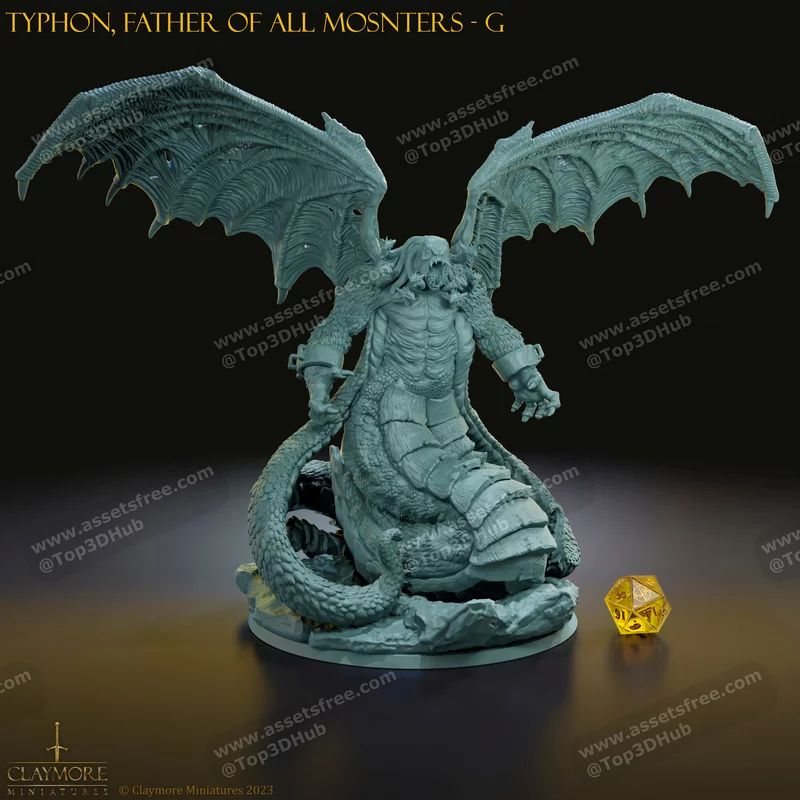
Typhon, Father of all Monsters – 3D print model STL
3D Print File Format: STL
Typhon, often referred to as the “Father of All Monsters” or the “Father of Typhoeus,” is a colossal and monstrous figure in Greek mythology. He is considered one of the most powerful and destructive beings in Greek mythology and is closely associated with chaos and natural disasters. Here are key details about Typhon:
1. **Origins:** Typhon was born of Gaia, the Earth, and Tartarus, the deepest abyss of the underworld. He is often considered the most powerful offspring of Gaia.
2. **Physical Characteristics:** Typhon is typically described as a gigantic and terrifying monster. He was said to have a hundred serpent heads, each with a different voice, and his eyes emitted fire. His lower body was composed of a massive coil of serpents, and his sheer size was said to reach the heavens.
3. **Battle with the Gods:** Typhon waged a fierce and catastrophic war against the Olympian gods. He sought to overthrow them and establish himself as the ruler of the cosmos. His strength and size were so immense that the gods initially fled in fear.
4. **Zeus’s Battle:** Zeus, the king of the gods, eventually confronted Typhon in a monumental battle. Zeus threw thunderbolts and unleashed his full power to defeat Typhon. In the end, he was successful, striking Typhon with a thunderbolt that trapped him beneath Mount Etna in Sicily.
5. **Volcanic Connection:** Typhon’s imprisonment beneath Mount Etna was believed to be the cause of volcanic eruptions in the region. The rumblings and fiery eruptions of the volcano were seen as the result of Typhon’s struggles to escape.
6. **Symbolism:** Typhon represents the chaotic and destructive forces of nature, including storms, hurricanes, and volcanic eruptions. He embodies the untamed and uncontrollable aspects of the natural world.
7. **Cultural Influence:** The story of Typhon has had a lasting impact on literature, art, and popular culture. It is often cited as an example of the heroic struggle of the gods against overwhelming adversity.
Typhon’s character serves as a symbol of the wild and destructive forces of nature that the ancient Greeks sought to explain through mythology. His defeat by Zeus underscores the triumph of order and divine rule over chaos and disorder.


